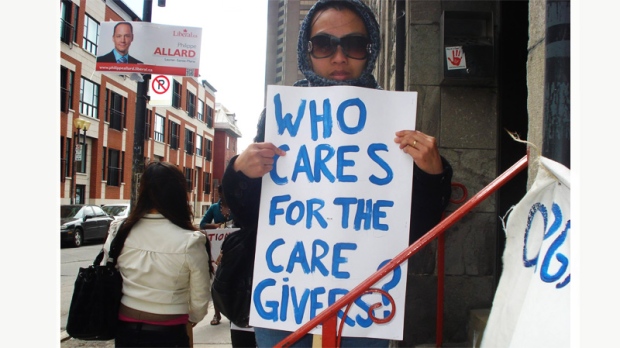DALY CITY, California — Canada has unveiled important changes to its Live-In Caregiver Program, giving better protection to caregivers and as well as opportunities for them to become permanent residents.
Minister of Citizenship and Immigration Chris Alexander announced that the “live-in” aspect of the program, which required caregivers to live with their employers, is now optional.
The government, he said, recognizes that in some cases, this requirement had led to exploitation of workers. For example, complaints were made against certain employers that forced caregivers to work overtime for no extra pay.
Additionally, the previous regulations for this program ensured that caregivers had living expenses such as accommodation, food and utilities taken from their pay, reports CIC News https://www.cicnews.com/2014/11/major-reforms-caregiver-program-announced-canadian-government-114044.html.
The recent reforms are a complete turnaround, with employers now unable to dock expenses for room and board from a worker’s compensation.
The other basic change to the caregiver program is the creation of two new categories for caregivers working in Canada on temporary work permits to seek permanent residence.
One pathway to permanent residence will be for childcare providers. The other will be for caregivers who take care of the elderly or those with chronic medical needs.
Caregivers will still have to work full-time for two years before being eligible to apply under these new categories. The Canadian government will aim to process applications within six months, in line with theExpress Entry immigration selection system due to come into operation on January 1, 2015.
Until now, it could take more than three years to process permanent residence applications made by caregivers. In the meantime, many caregivers have been separated from their families who they have left behind. Only after they attain permanent resident status can caregivers apply to bring family members to Canada, CIC News explained.
The faster processing of applications made by caregivers should therefore facilitate speedier family reunification, as principal applicants should attain permanent resident status quicker than before.
RELATED STORIES
70% drop in foreign caregivers in Canada—agencies
So you want to migrate to Canada
Canada law named after Filipina caregiver


